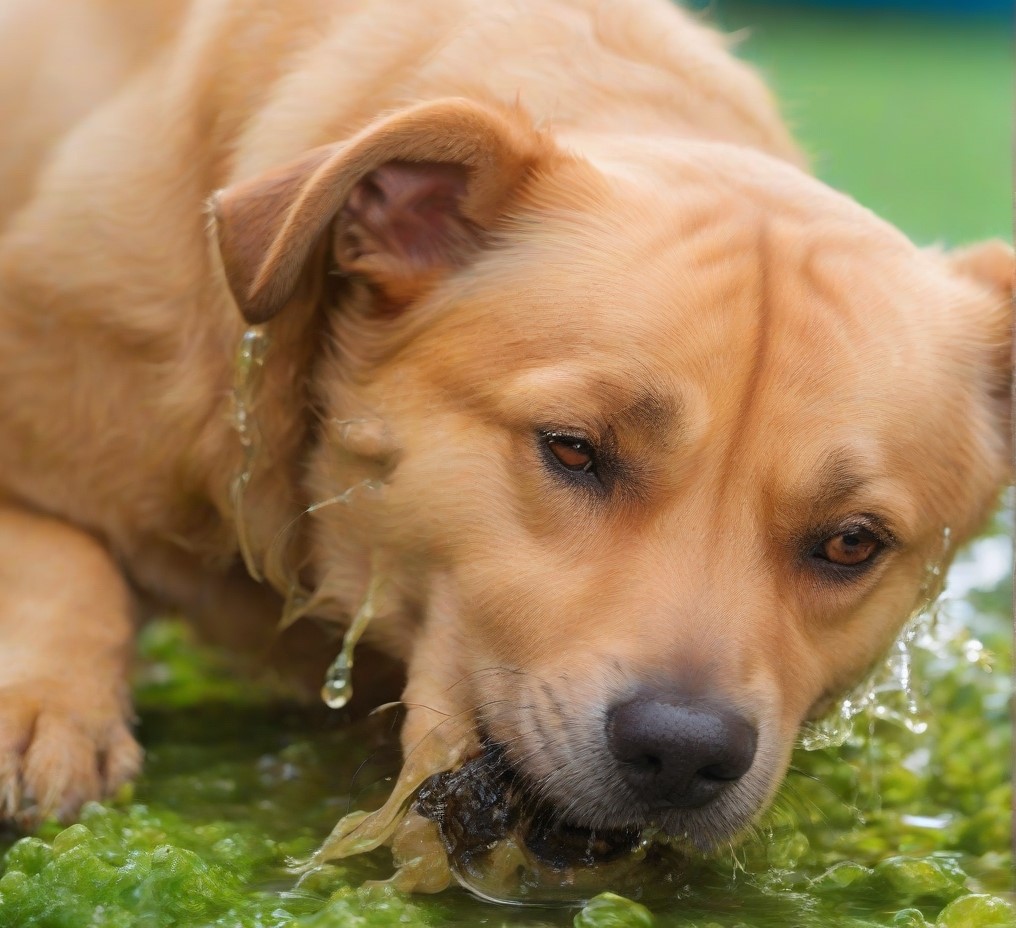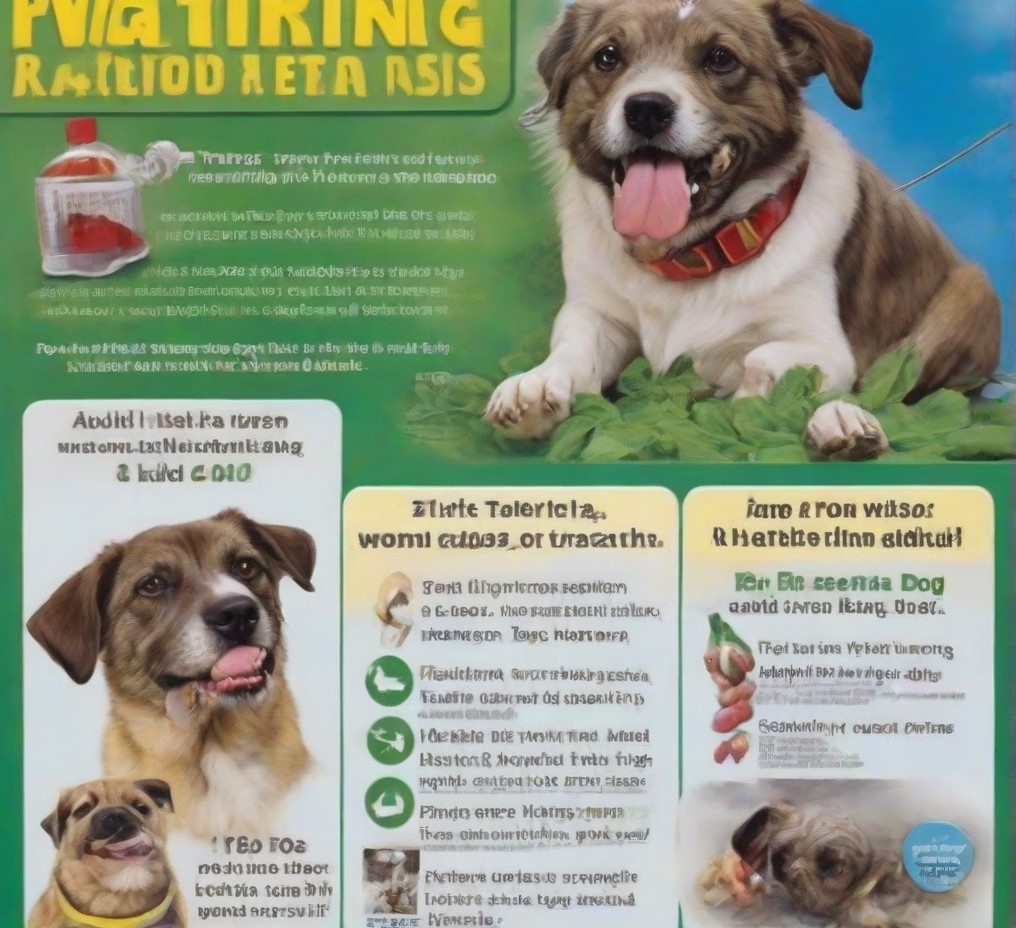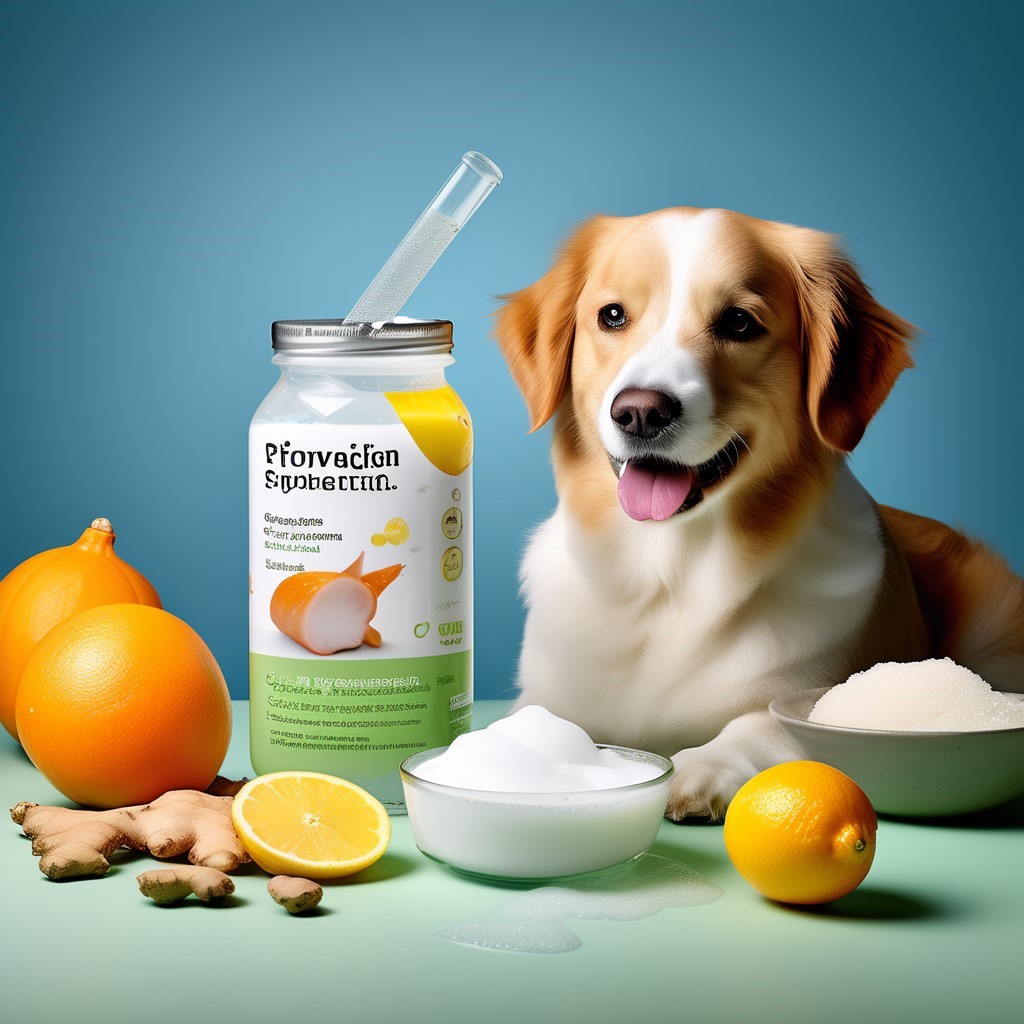Dog Vomiting and Diarrhea: A Quick Owner’s Guide
Dealing with a sick dog, including Dog Vomiting and Diarrhea is stressful for pets and owners alike. While gastrointestinal issues often resolve on their own, recognizing warning signs, knowing treatment options, and acting speed recovery. This guide explores common causes, vet vs home care, and how to keep your dog hydrated and comfortable until healthy digestion returns.
Key Takeaways for Managing Dog Vomiting and Diarrhea

- Call your vet – if blood in vomit/stool, ongoing pain, high fever, or lethargy.
- Withhold food initially and introduce a bland diet slowly once vomiting passes.
- Hydration is crucial – offer electrolyte solutions, ice chips, gelatin
- Over-the-counter antidiarrheals ease symptoms – check with the vet on the use
- Monitor energy level and other sickness signs closely
Catching illness promptly and responding appropriately relieves misery faster and prevents serious complications. This guide outlines smart yet sympathetic care for weathering stressful dog vomiting and diarrhea episodes.
Dog Vomiting and Diarrhea Causes: Unveiling the Culprits

Our beloved furry friends can’t communicate their discomfort verbally, but when they start showing signs of vomiting and diarrhea, it’s our responsibility to figure out the root cause. Here’s a closer look at the potential reasons behind these uneasy moments for your canine companion:
Food Adventures:
- Dogs, with their adventurous spirits, might ingest something they shouldn’t, leading to an upset stomach.
Dietary Surprises:
- Abrupt changes in their diet can throw their digestive system for a loop, resulting in tummy troubles.
Nasty Infections:
- Just like humans, dogs can fall victim to infections caused by bacteria, viruses, or parasites, causing stomach woes.
Oops, Toxic Snack:
- Accidental nibbles on toxic substances like certain plants, or household items can lead to digestive distress.
Food Sensitivities:
- Some dogs might not agree with certain ingredients, causing allergies or sensitivities that manifest as digestive issues.
Dealing with IBD:
- Chronic inflammation in the digestive tract, known as Inflammatory Bowel Disease (IBD), can result in ongoing vomiting and diarrhea.
Pesky Pancreatitis:
- Inflammation of the pancreas can be another culprit behind your dog’s upset stomach.
Blocked Pathways:
- Swallowing non-food items that get stuck in their system can lead to blockages and the accompanying symptoms.
Not a Fan of Motion:
- Some dogs experience motion sickness during car rides or other forms of movement, causing nausea and vomiting.
Feeling Stressed:
- Believe it or not, emotional factors like stress or anxiety can affect your dog’s digestion, leading to stomach upset.
| 11. Potential Causes of Dog Vomiting and Diarrhea | Description | Risk Level | Risk Factors Description |
| 1. Food Adventures | Dogs may ingest inappropriate items, leading to stomach upset. | Moderate | Dogs exploring and ingesting inappropriate items. |
| 2. Dietary Surprises | Sudden changes in their diet can disrupt their digestive system. | Low | Abrupt changes in diet disrupt the digestive system. |
| 3. Nasty Infections | Infections caused by bacteria, viruses, or parasites can trigger stomach woes. | High | Bacterial, viral, or parasitic infections cause stomach woes. |
| 4. Oops, Toxic Snack | Accidental nibbles on toxic substances like certain plants or household items. | Moderate | Accidental nibbles on toxic substances. |
| 5. Food Sensitivities | Some dogs may have allergies or sensitivities to specific ingredients. | Moderate | Dogs with allergies or sensitivities to certain ingredients. |
| 6. Dealing with IBD | Inflammatory Bowel Disease (IBD) can cause chronic inflammation in the digestive tract. | High | Chronic inflammation in the digestive tract. |
| 7. Pesky Pancreatitis | Inflammation of the pancreas can contribute to an upset stomach. | Moderate | Inflammation of the pancreas contributes to an upset stomach. |
| 8. Blocked Pathways | Swallowing non-food items that lead to blockages in their system. | High | Swallowing non-food items leads to blockages. |
| 9. Not a Fan of Motion | Motion sickness during car rides or other movements. | Low | Motion sickness during car rides or movement. |
| 10. Feeling Stressed | Emotional factors like stress or anxiety can affect digestion. | Moderate | Emotional factors like stress impact digestion. |
Understanding these potential causes and risk factors empowers you to gauge the severity of your dog’s symptoms. If issues persist, consult with your vet for accurate diagnosis and appropriate treatment. Stay attentive, provide comfort, and seek professional care when needed to ensure your furry friend’s happiness and health.
Warning Signs Requiring Veterinary Attention for Dog Vomiting and Diarrhea

Though rarely serious with prompt supportive care, dog vomiting and diarrhea necessarily warrant vet evaluation if:
- Lasting over 48 hours in adult dogs, 24 hours in puppies
- Bloody vomit or black tarry stools
- Loss of appetite beyond 1-2 missed meals.
- High fever, worsening lethargy.
- Severe ongoing abdominal pain or bloating
- Dehydration – dry gums, weakness, skin tenting
Puppies, small, or senior dogs, face higher risks for scary complications like marked dehydration, dangerous electrolyte crashes, or sepsis. Know when to seek help to prevent exhaustive vomiting from becoming life-threatening.
Providing Pet First Aid Supportive Care

As eager as sick dogs may be to gobble food, withholding access lets their distressed digestive tract rest. During sickness flareups:
- Hydration is key – offer small but very frequent sips of water, bone broth, diluted plate, and ice chips.
- Allow licking ice cubes for hydration without overfilling the stomach.
- Soothe their stomach with bland chicken, rice feast, yogurt, and pureed pumpkin.
- Ginger, mint, chamomile, and fennel may ease vomiting and diarrhea
- Try gentle tummy massages to relax abdominal muscles.
- Monitor closely for worsening status.
Dog Vomiting and Diarrhea: After resolving to vomit, reintroduce regular food gradually over a few days. Start with smaller, frequent portions and consider probiotic-fortified options for gut health.
Over-the-counter antidiarrheal and Antacid Medications
Several OTC drugs provide additional relief for dog vomiting and diarrhea episodes after vet approval, including:
Antidiarrheals like Imodium or Kaopectate absorb fluid and slow motility, allowing healing.
Probiotics like Forti flora support healthy gut flora, preventing diarrhea.
Antacids like Pepcid ease associated nausea, ulcers, and gas pain.
Follow package dosing carefully based on the pet’s weight and age. Stop giving if side effects develop, like appetite loss or constipation. Reach out to your veterinarian before starting medication to ensure appropriateness.
When to Make a Veterinary Appointment
Despite attentive home care, if concerning signs persist beyond 1-2 days, bringing your dog in for examination, fecal analysis, bloodwork, or imaging kicks problem-solving efforts into high gear.
- Fluid therapy, injectables, and anti-vomiting drugs ease severe cases.
- Strict bland diets, oral antibiotics, or dewormers clear underlying infections
- Food sensitivity testing unmasks trigger ingredients.
- Long-term medications control chronic colitis.
- In extreme situations, hospitalization provides intensive treatment.
Dog Vomiting and Diarrhea: Partner with your vet early to prevent misery, speed healing, and address recurring issues, avoiding complications like dehydration.
Outlook and Prevention of Dog Vomiting and Diarrhea
Subject to occasional acute upset, most dogs fully bounce back following prompt supportive care and any necessary medical treatments. Preventing repeat troubles means following veterinary dietary recommendations, maintaining thorough dental care, avoiding garbage raiding, washing food bowls frequently, and steering clear of contamination hazards in the yard or on walks in higher-risk seasons.
While passing episodes prove, disruptive, vomiting and diarrhea serve as your dog’s natural defense to quickly expel whatever substance or pathogen is irritating their system or making them ill. Support this process gently with hydration, rest, and stomach soothers, and call the vet for guidance on when extra medications or interventions expedite their recovery.
FAQs About Dog Vomiting and Diarrhea
What should I do if my dog has diarrhea and vomiting?
If your dog is vomiting and has diarrhea, withhold food for 6-12 hours to allow their stomach to rest. Make sure they get small sips of water frequently to prevent dehydration. You can try giving ice cubes or bone broth too. Call your vet if symptoms last over 24 hours or if you notice blood, high fever, severe pain, bloating, or weakness.
How long does it take a dog to recover from vomiting and diarrhea?
Uncomplicated vomiting and diarrhea cases often resolve independently within 12-24 hours. But seek vet care if symptoms exceed 48 hours to get fluids, anti-nausea meds, or antibiotics if needed. Strictly rest their stomach for 12-24 hours, then slowly reintroduce bland foods like rice and chicken.
Should I give my dog water after vomiting and diarrhea?
Yes, hydration is crucial after vomiting, and diarrhea to replace fluids lost. Give ice chips, small sips of water, bone broth, or unflavored Plato frequently. Stop if vomiting worsens. Hydration helps restore electrolyte balance and prevents dehydration.
Why is my dog throwing up and having diarrhea but acting fine?
It may be because of dietary indiscretion after raiding trash or eating spoiled food. The irritation can cause acute gastroenteritis with vomiting/diarrhea, but your dog may otherwise act normally. Withhold food briefly, slowly reintroduce a bland diet, give antacids or probiotics if the vet recommends, and monitor closely for improvement over 24 hours.
Conclusion about Dog Vomiting and Diarrhea
Dog Vomiting and Diarrhea: When your dog shows signs, it signals a rest period. Understanding causes and gentle care with hydration, TLC, and vet-approved meds can ease misery. If the signs persist beyond 48 hours or worsen, seek vet care promptly for faster resolution with proper treatments. Arm yourself with the knowledge to respond appropriately and provide at-home care, ensuring your dog’s comfort during digestive distress. Stick with them through tough times for a swift return to good times.



